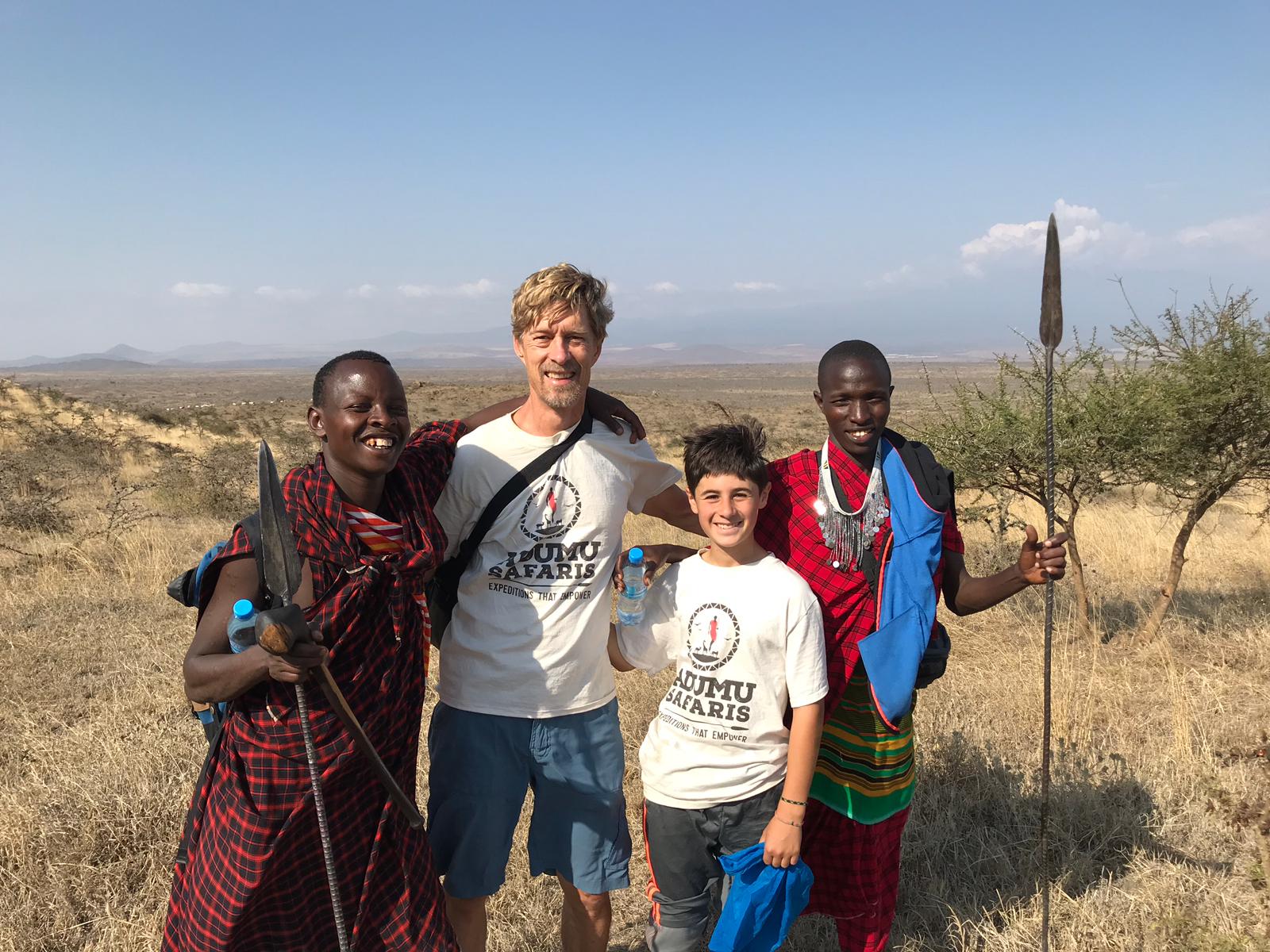David Ngoseck Mollel and Danielle Heard Mollel – co-founders of Adumu Safaris – want safari tourism to move beyond its colonial origins to truly benefit local people and wildlife. Rose Dykins finds out more about the community-led travel experiences they offer
Why did you want to create Adumu Safaris?
Danielle: “Adumu Safaris and Adumu Impact were both established to restore land rights, culture and economic self-determination to the indigenous Maasai people of East Africa through our equitable eco-tourism experiences, through our regional tourism reform programmes and through our community managed wildlife conservation.
“We started Adumu Safaris back in 2018 – David had been in the tourism industry for a long time, and I was an academic. I come from the area of Black Studies and social justice research. We became more aware of doing safari tourism in a different way.
“David has first-hand experience as a Maasai in the region, and learning more about the depth of the problem regarding land rights intersecting with tourism, that kind of hooked me into the project.”
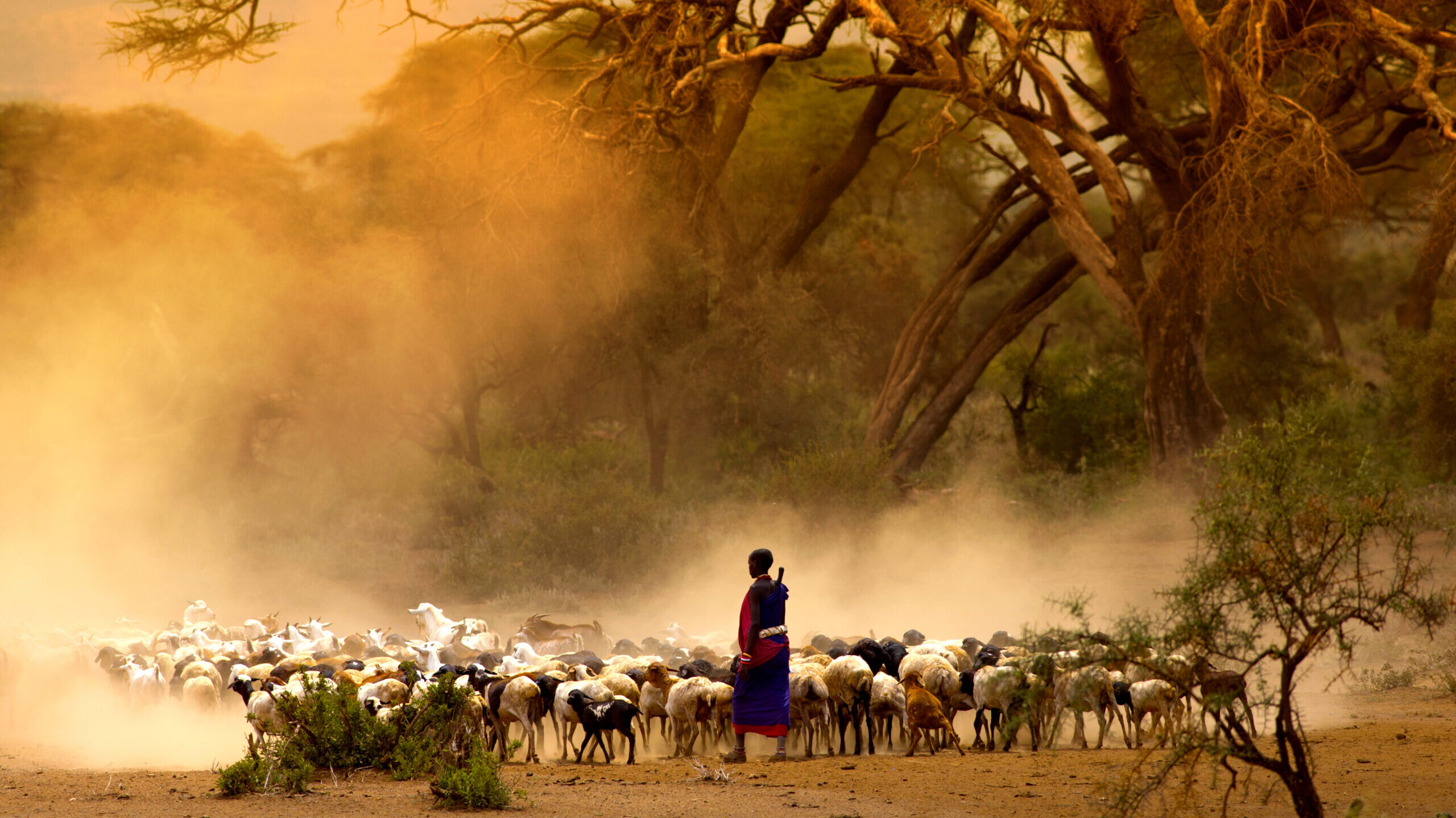 David: “I’m originally from Tanzania, a Maasai from Arusha. I started getting into tourism when I was in Tanzania, and then I studied international languages, and later when to the College of African Wildlife Management. I worked with different companies in Tanzania and got experience of how they do their tourism packages. Later on, we decided to start Adumu Safaris and do it a little bit differently from what I’ve experienced.”
David: “I’m originally from Tanzania, a Maasai from Arusha. I started getting into tourism when I was in Tanzania, and then I studied international languages, and later when to the College of African Wildlife Management. I worked with different companies in Tanzania and got experience of how they do their tourism packages. Later on, we decided to start Adumu Safaris and do it a little bit differently from what I’ve experienced.”
What have been your first-hand experiences of where safari operators have not been socially responsible, particularly with the treatment of the Maasai people?
David: “A lot of foreign companies are buying big chunks of land to build lodges that take up land that could be used by the Maasai. The Maasai are nomadic – they move from one place to another to breed their cattle, so that creates a lot of conflict, and it also creates a wildlife corridor blockage too.
“The colonial mentality of conservation was not to include people. And that did not work – they had law enforcement [such as poaching laws], but there has still been a degradation of wildlife. If you involve local people, they can help a lot, because many eyes can see a lot more when it comes to poachers.”
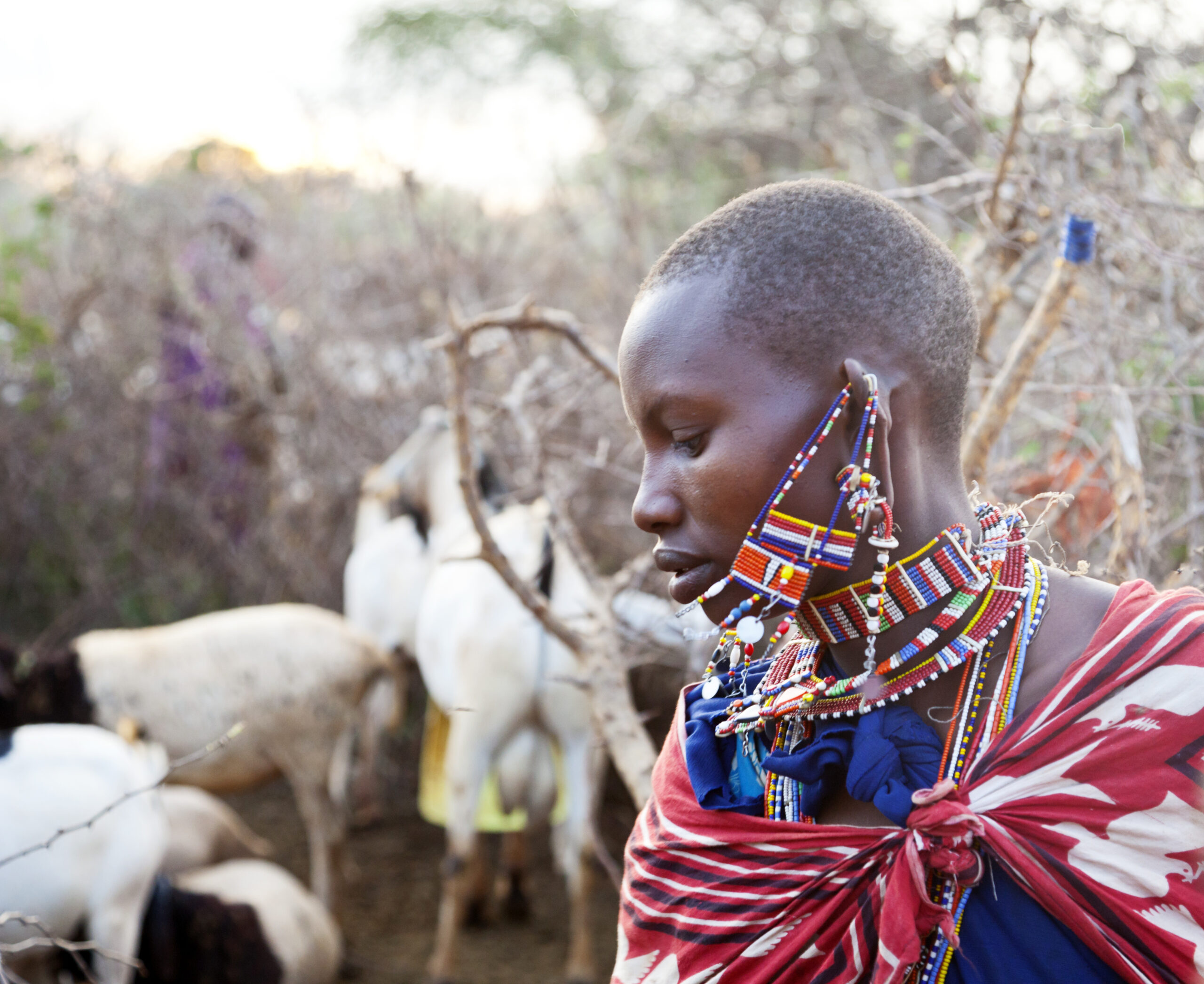 How does Colonialism manifest itself in the safari industry today?
How does Colonialism manifest itself in the safari industry today?
Danielle: “The unfortunate fact of the matter is safari tourism has direct roots in colonialism. So, some of the big areas are exploitation of resources, the funnelling of profits out of the country and the denigration of local culture and voices.
“Culturally it’s very linked to colonists exploiting the land and people for their own benefit and profiting from the region without giving back to the people. The original safaris were hunting safaris for one thing, so culturally, the safari experience is linked to that. Fortunately, there are ways to do safaris that are move them away from their cultural origins.
“In terms of the exploration of land and people, you see huge profits going to foreign companies and investors, and nothing going back to the local people. It’s being done systematically in a way that is irresponsible and rife with injustice, and that causes extreme poverty among locals.
“Quite frankly, there’s the racist element, where the way in which locals have been incorporated has been kind of as cultural tokens. It’s not that tourists shouldn’t be interested in the Maasai – meeting the Maasai in itself, that desire has a lot of potential, it’s a good thing. But only when Maasai have the ability to represent themselves in their own terms, and it’s an authentic, cross-cultural experience.
“The colonial mentality pervades the dominant discourse of conservation these days, where it’s like the West has come in and saved the locals from themselves. But the truth of the matter is that indigenous people have hundreds of years of knowledge of how to live and co-exist sustainably with wildlife.
“They have great voices on conservation that need to be raised. And actually, tourism is one way to do that, by having tourists experience and hear that indigenous knowledge about conservation through their visits.
“As we like to say, where tourism poses it a crisis, it also poses an opportunity to do the very opposite.”
How widespread is the problem? Does the industry just need an overhaul, or is it possible for travellers to make more ethical choices when booking eco-safaris?
Danielle: “The unfortunate thing is that the ‘eco’ label is being widely attached to almost every safari experience, and so widely marketed, but it’s actually quite empty. Usually the very best scenario is that companies are doing less harm – they’re employing local people, building lower impact lodges, they might have a community project or non-profit associated with them.
“But they’re not systemically changing the issues and their social impact is quite light, and it’s not in proportion to the profits that they’re reaping and taking out of the country.
“The worst-case scenario is the companies who are just buying huge chunks of land and forcing local communities off of it – often violently so. They are creating huge crises for the locals like the Maasai, creating extreme poverty and and the inability to live in the traditional way which enables sustainable coexistence.

“Meanwhile, they’re taking the profits out of the country, and obviously the government gets a cut. So this is permissible because of the way in which governments get involved mean they gain money from tourism.
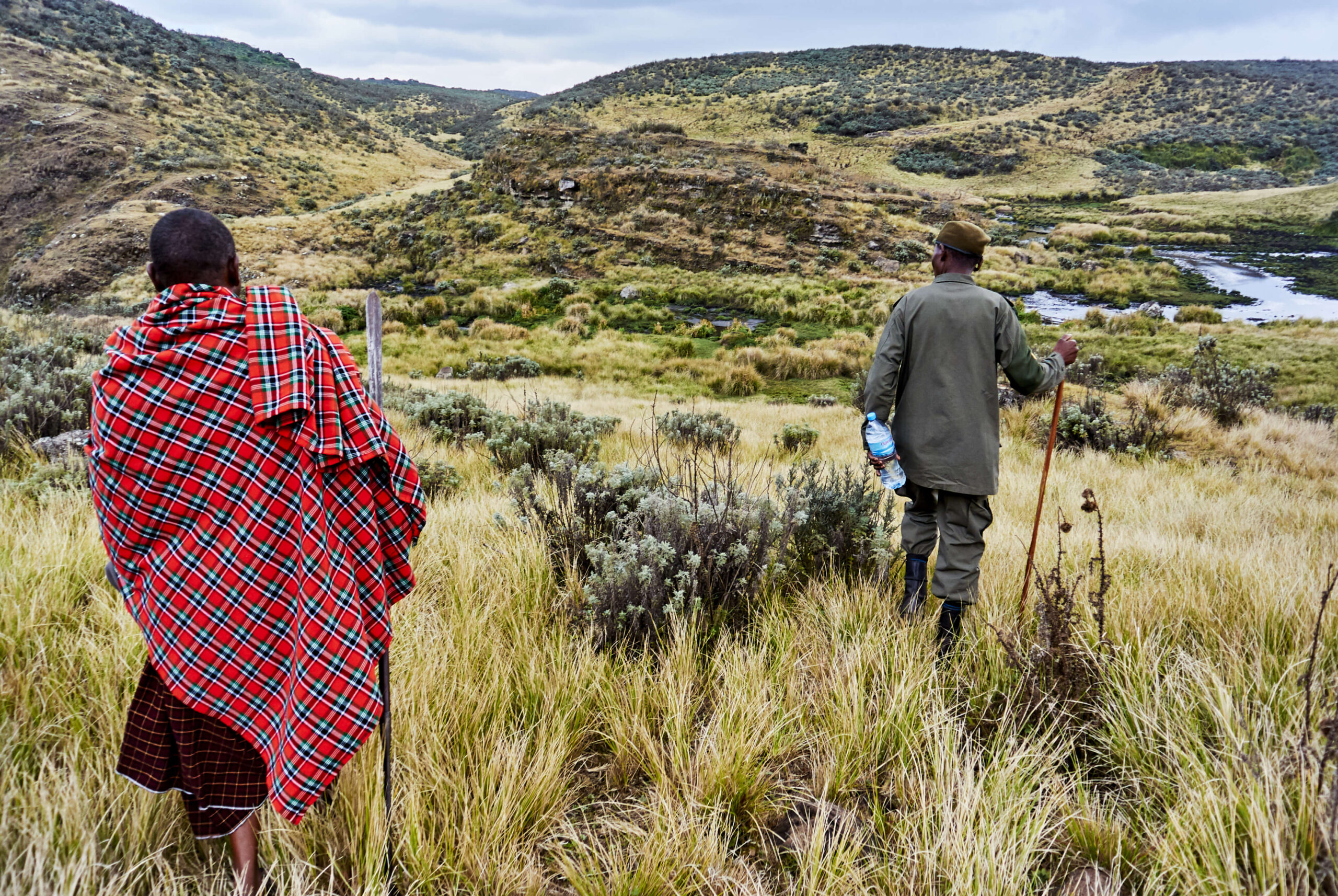 “Eco branding is a huge problem because it does mask what the companies are actually up to. The sad part is that for travellers, it’s pretty hard to currently discern what ‘eco’ is, and eco-tourism unfortunately is really being thrown around as a term to justify kicking people off their lands – that is the irony of it.
“Eco branding is a huge problem because it does mask what the companies are actually up to. The sad part is that for travellers, it’s pretty hard to currently discern what ‘eco’ is, and eco-tourism unfortunately is really being thrown around as a term to justify kicking people off their lands – that is the irony of it.
“We are not trying to call out any companies by name, but we want to raise awareness so that travellers can be much more conscious about the questions to ask when they are choosing a safari company. We want to give them Adumu Safaris as an option they can feel good about.
“And we’re hoping that over time, we’re able to really encourage others in the region to be socially responsible as well, in a much more meaningful, systemic way, and to really put pressure on the companies dong the most egregious actions in the region.”
David: “A lot of eco companies use a different company down on the ground that’s not really doing the right thing. We are on the ground as well as being international, so that’s another advantage.”
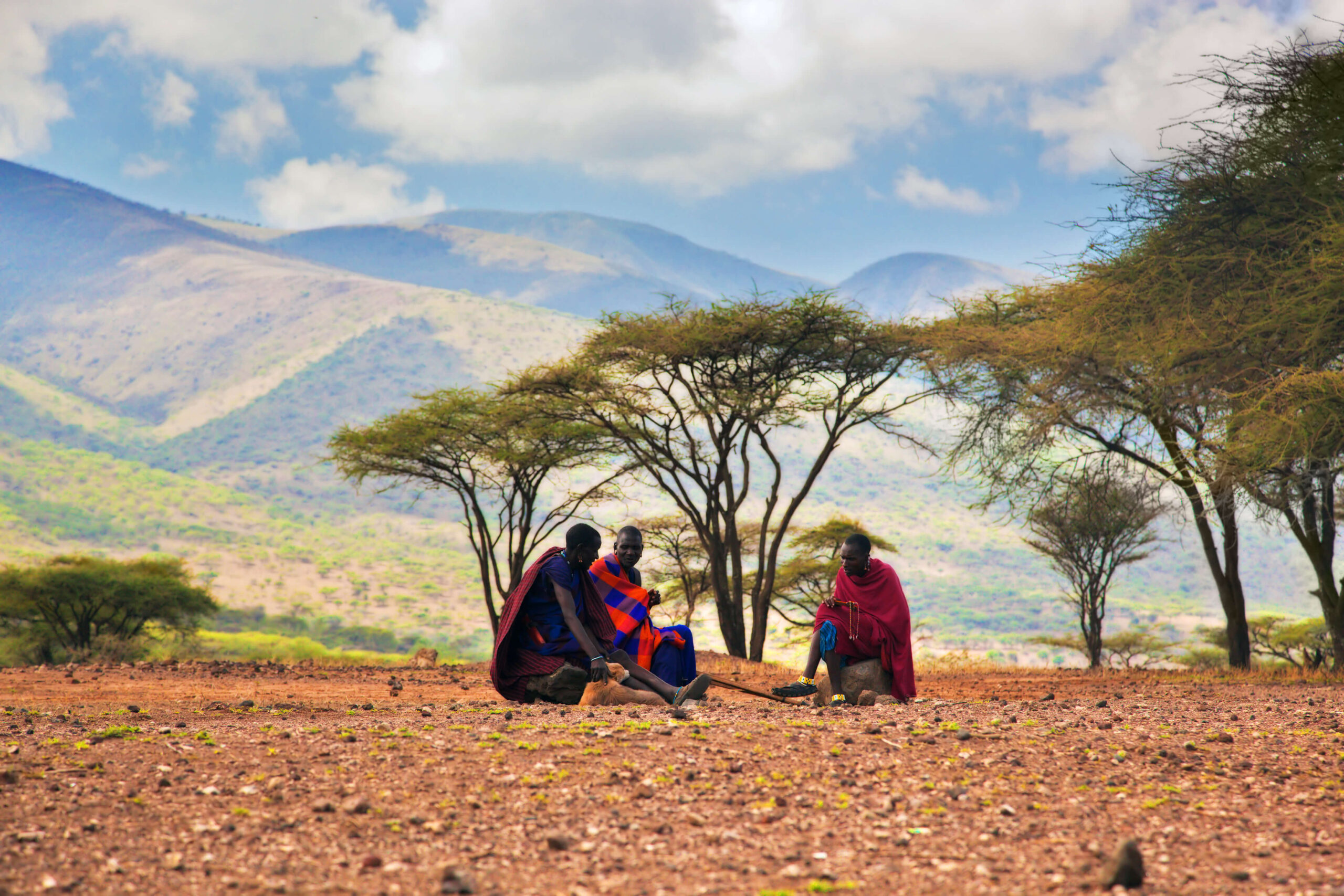 How does Adumu Safaris do things differently?
How does Adumu Safaris do things differently?
Danielle: “We have a Theory of Change, and one of the first steps is to train a large number of local Maasai men and women – at least 51 per cent women from the local community – in guiding and other aspects of tourism and hospitality management, so they can be employed as guides and also higher level management positions, and even start their own businesses.
“Despite all the knowledge of the local landscape, you need a certain set of skills to be able to guide tourists: language skills, hospitality skills, and certain kinds of guiding skills to be hired by any company. So access to education is one thing we are trying to do.
“The other thing is that to work with the community and make sure it is benefitting from anything to do with land for our tourism enterprise. We’re working to build community-managed lodges and centres, where the community gets a direct income from the land and the lodge, and that also protects that bit of land because it’s co-operatively owned.
“It gets used as part of the Maasai’s way of life for migrating cattle and goats in different seasons, and Maasai would be employed at the lodge itself and as guides.
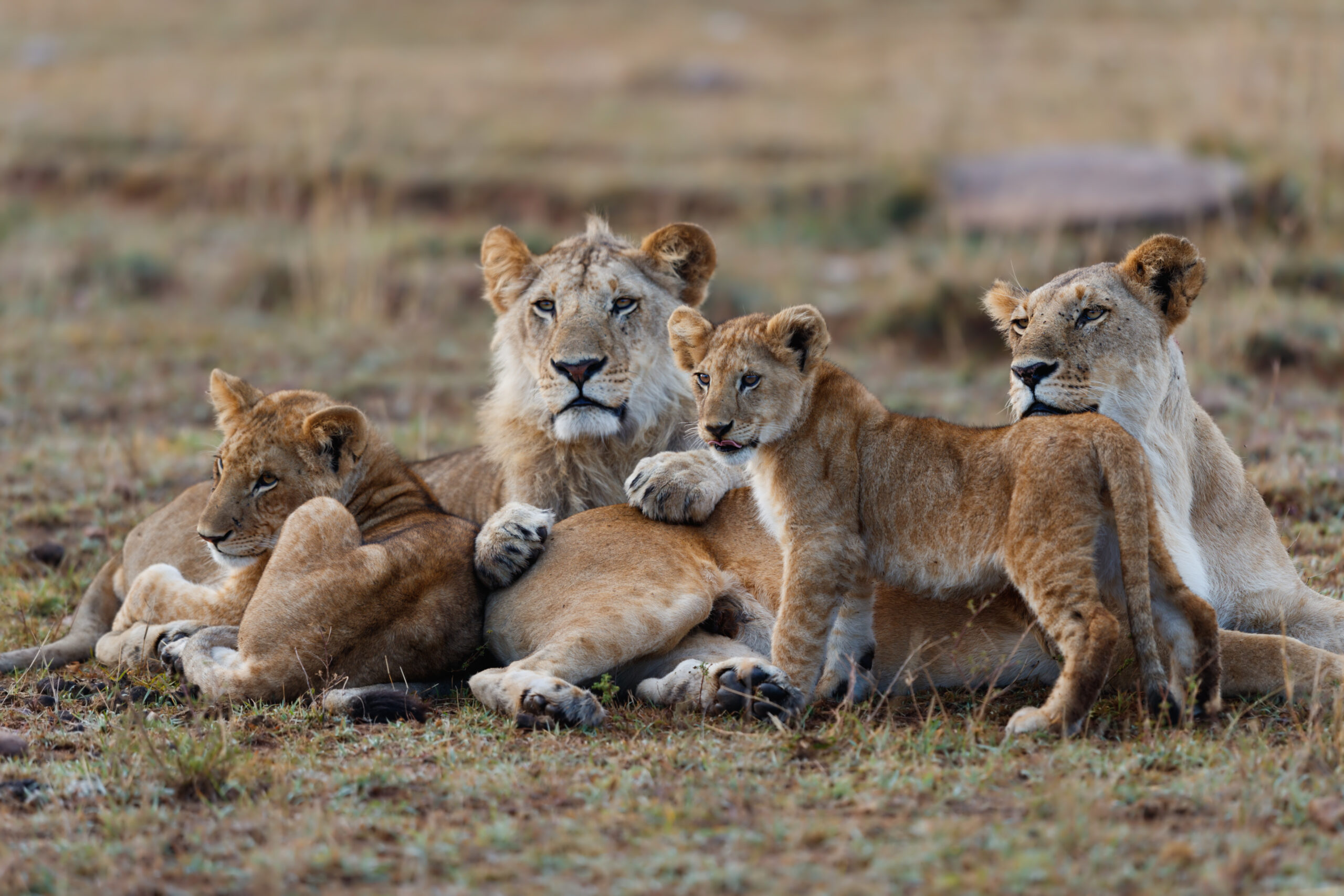 “We also work with the community to form wildlife management areas and/or indigenous community conservation areas. Those are two kind of different frameworks for working with communities to protect large bits of land by leveraging tourism to sustain it economically.
“We also work with the community to form wildlife management areas and/or indigenous community conservation areas. Those are two kind of different frameworks for working with communities to protect large bits of land by leveraging tourism to sustain it economically.
“So we’re using tourism to achieve those goals, whereas other companies, they might have a social impact goal, but for us, tourism is going to enable those things to occur. Having our community enables us to add some really unique experiences into the tours and also opportunities for tourists to have hands-on conservation experiences.”
David: “Education and wildlife management are also key when it comes to eliminating the conflict between Maasai and the other tribes, so animals can move freely from one area to another.”
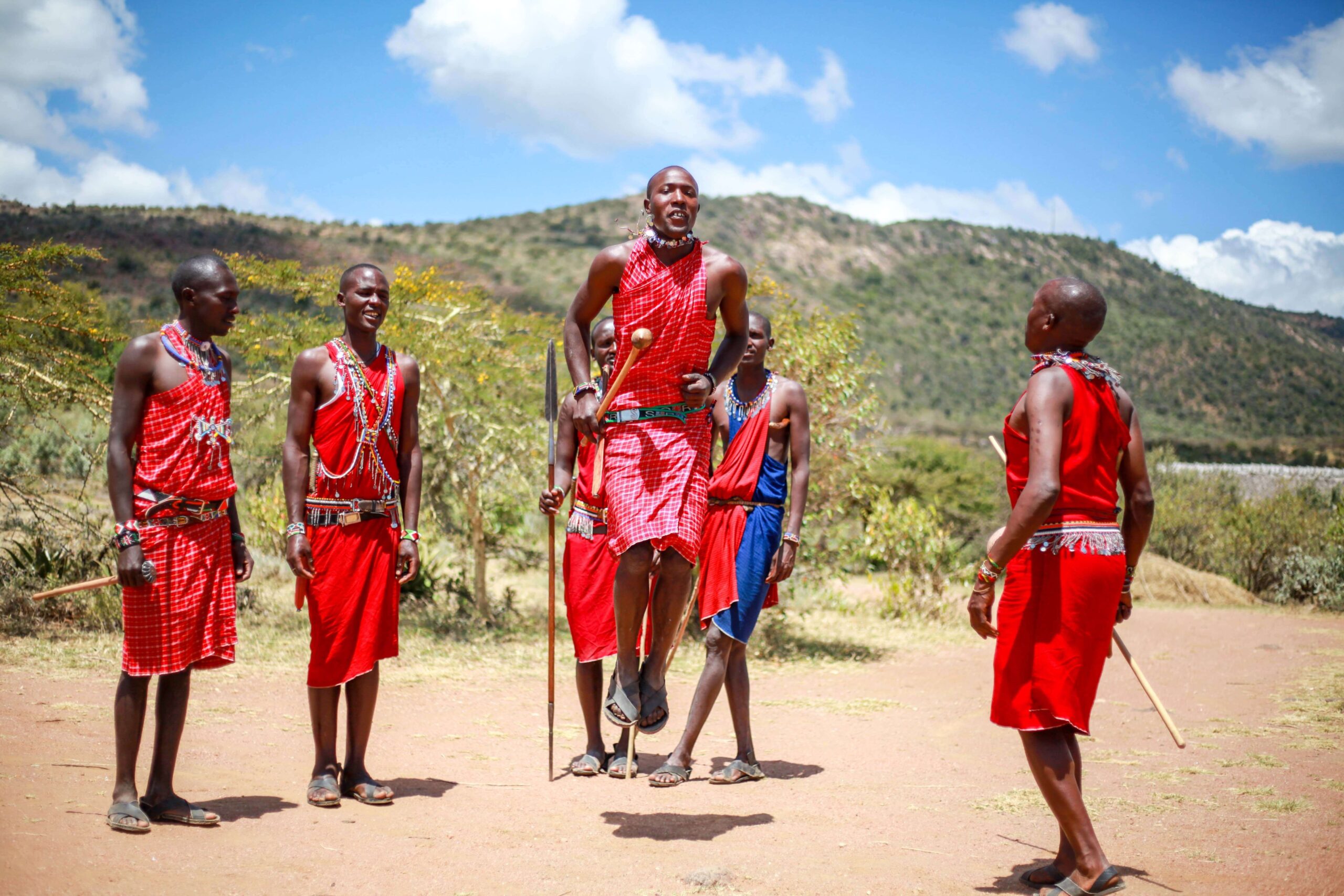 How do your culturally immersive experiences with the Maasai people differ from those with other operators?
How do your culturally immersive experiences with the Maasai people differ from those with other operators?
Danielle: “Most people who have gone on a safari in East Africa have probably had a stop at Maasai boma [group of homes]. A lot of clients we’ve met who’ve gone with other companies didn’t like it – they say it felt a bit staged, perhaps, or they showed up and felt like they were being sold a bunch of souvenirs – something felt awkward about the experience.
“If you go on safari, you’ll do the Adumu Dance (the term Adumu comes from the Maasai jumping dance.) But usually it’a quick one-hour stop – they do the Adumu with you, you buy some trinkets and leave. It feels awkward because it is awkward, and people are not benefitting economically. The whole situation is just inauthentic, and not a pleasurable as it should be.
“We do something totally different where we have community-led experiences that go much deeper than a quick visit. We try to build on a longer more immersive experiences into our itinerary, which we customise. Our clients are always pleasantly surprised, and they say one of the highlights – if not the highlight of the trip – was going with the Maasai and learning about traditional medicine, spear throwing, enjoying a whole series of authentic cultural experiences and getting to know the people.
“Some travellers stay in touch with the people and are supporting them with their education, having true friendships with who they met. And it’s life-changing: it changes the lives of the traveller, and it changes the lives of locals for the better.”
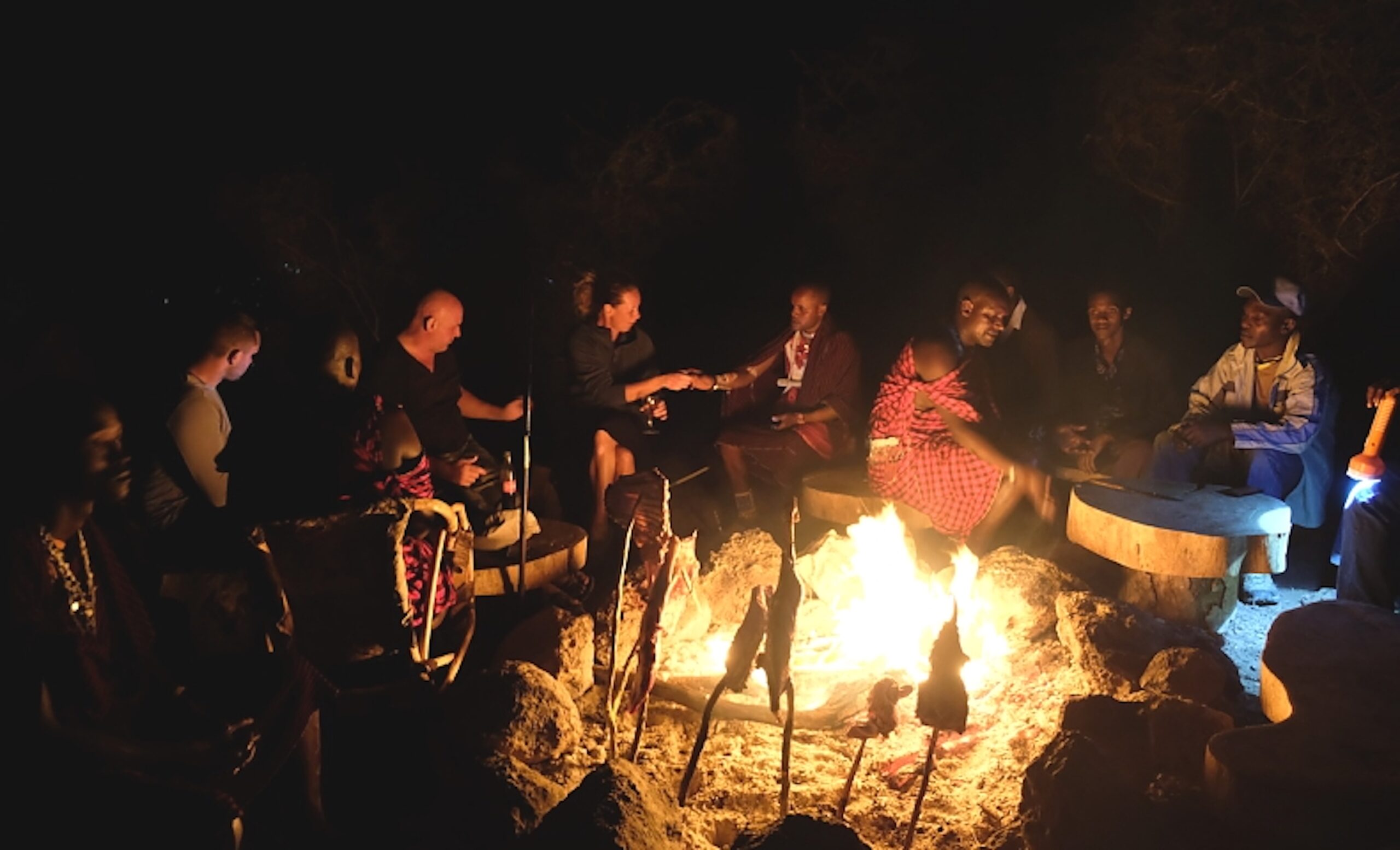 David: “Sometimes when people think of safaris, they have this vision of just being in a Jeep and taking pictures from there. With the cultural immersion, when they get down to the ground in Tanzania or Kenya, it’s about being a part of the Maasai, the way they herd their cattle, for example. It’s slow and they tend to absorb a lot and they learn a lot, and it’s been really positive for clients.
David: “Sometimes when people think of safaris, they have this vision of just being in a Jeep and taking pictures from there. With the cultural immersion, when they get down to the ground in Tanzania or Kenya, it’s about being a part of the Maasai, the way they herd their cattle, for example. It’s slow and they tend to absorb a lot and they learn a lot, and it’s been really positive for clients.
“We want to change this mentality where people come to Tanzania to see the Maasai as much as they want to see lions! So they are also meeting our people and our culture.” (Visit tanzanianvisa.com for help with visas.)
Could you talk about some of the travel experiences you offer – what’s in a typical Adumu Safaris itinerary?
Danielle: Our Tanzania Northern Circuit itinerary includes the Serengeti National Park, where you can observe the wildebeest migration most months of the year, and a visit the Ngorongoro Crater and the natural wonders people want to see when they go to the region. 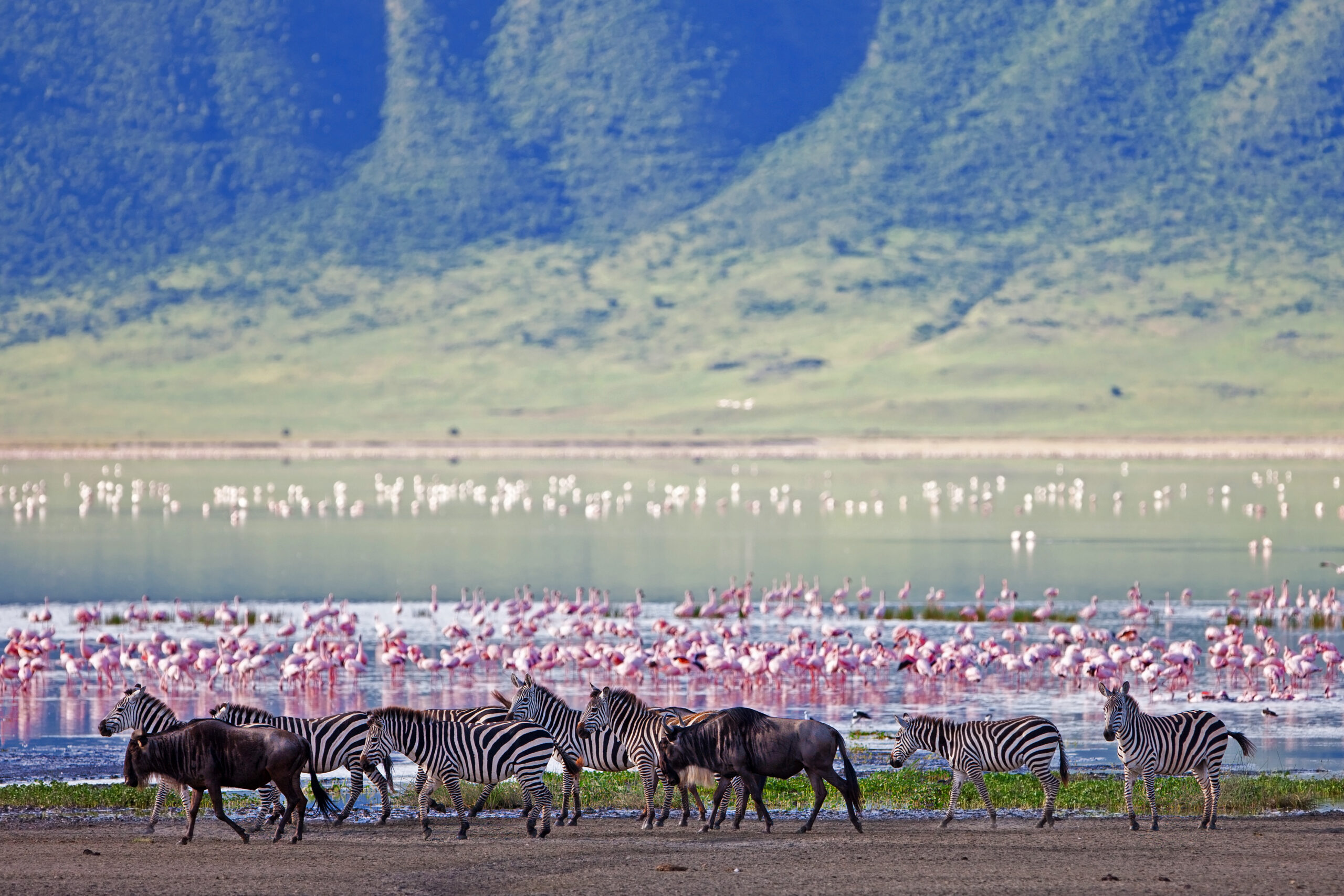 “We work with a community-based tourism company able to offer hikes in the foothills of Mt Meru, where travellers get to learn about the Meru tribe and hear some traditional storytelling while they’re walking through the forest. We mix in activities that can include going to someone called Mama Gladness’s house and having lunch, or going on a Fairtrade organic coffee tour.
“We work with a community-based tourism company able to offer hikes in the foothills of Mt Meru, where travellers get to learn about the Meru tribe and hear some traditional storytelling while they’re walking through the forest. We mix in activities that can include going to someone called Mama Gladness’s house and having lunch, or going on a Fairtrade organic coffee tour.
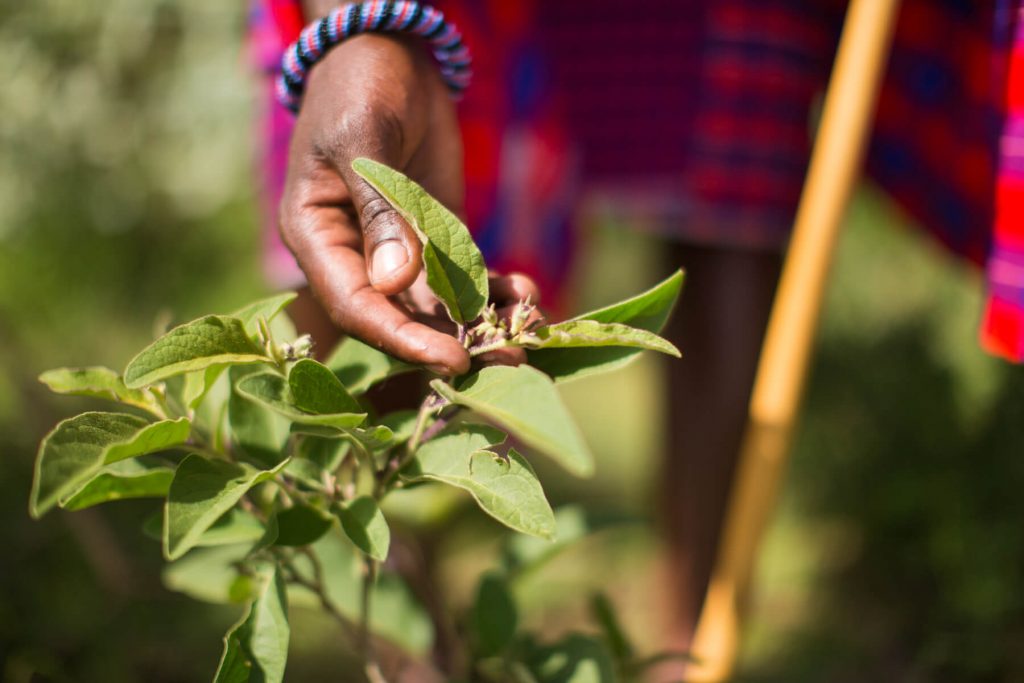 “Later, we like to visit Randilen Wildlife Management Area in a Maasai area, which is engaged in a lot of community managed conservation efforts and anti-poaching campaigns. We give a tour of everything that’s going on there, so travellers can see the positive effects of tourism at the intersection of the Maasai communities and conservation. They can also take walking safaris and hear indigenous voices on conservation.
“Later, we like to visit Randilen Wildlife Management Area in a Maasai area, which is engaged in a lot of community managed conservation efforts and anti-poaching campaigns. We give a tour of everything that’s going on there, so travellers can see the positive effects of tourism at the intersection of the Maasai communities and conservation. They can also take walking safaris and hear indigenous voices on conservation.
“Our culturally immersive experiences can include a one-day or multi-day stay with the Maasai community, and we do homestays as well, for those who want a really immersive authentic experience.
“We also have culturally immersive visits with the Hadzabe tribe – one of the last hunter gatherer tribes on the planet, they’re considered endangered. There have been some responsible tourism efforts that have helped the Hadzabe hang on to their way of life. Clients wake up early and follow the Hadzabe on one of their daily hunts. They also get to talk to the women and elders and learn some of the traditional stories.
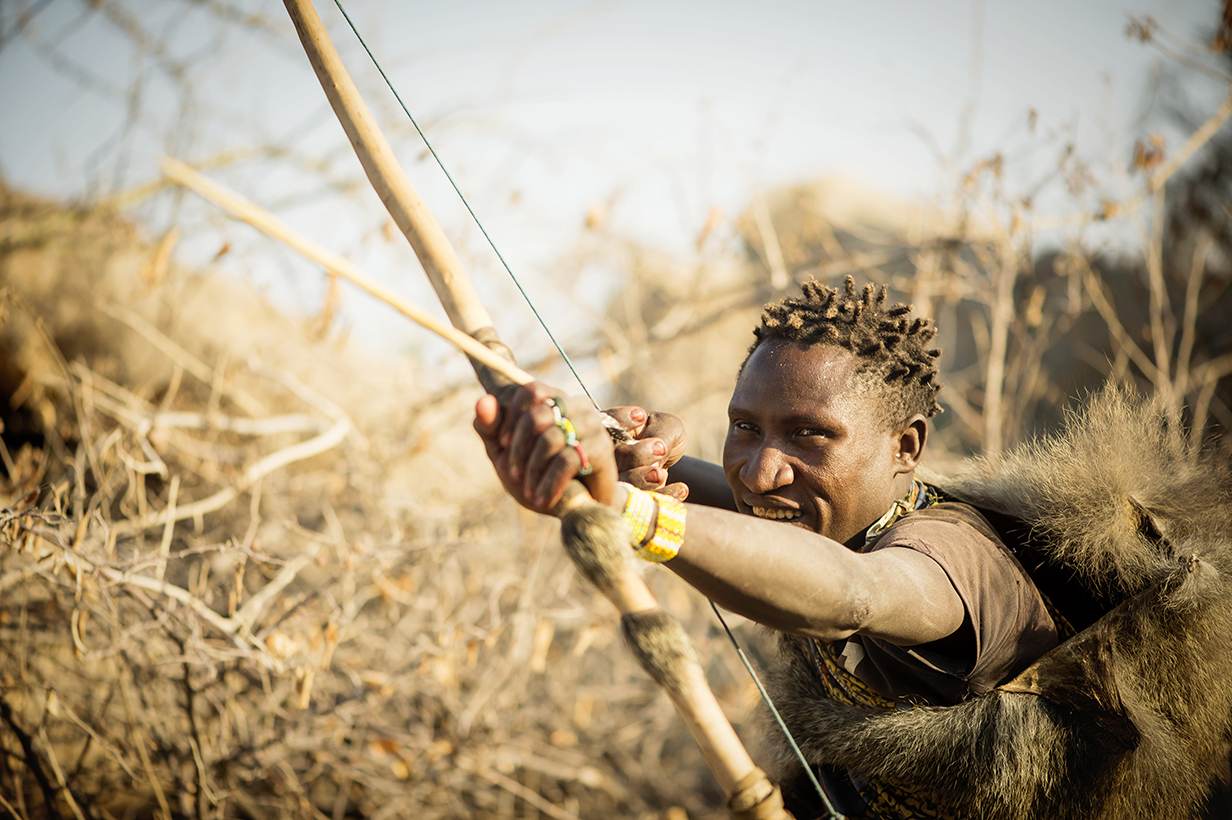 “One of the highlights of East Africa of course is the diversity of the ecosystems and cultures, especially when you look at the four countries we visit: Tanzania, Kenya, Uganda, Rwanda. But the coast is something not everybody realises is there, so we love to be able to add a visit to the coast on for folks.
“One of the highlights of East Africa of course is the diversity of the ecosystems and cultures, especially when you look at the four countries we visit: Tanzania, Kenya, Uganda, Rwanda. But the coast is something not everybody realises is there, so we love to be able to add a visit to the coast on for folks.
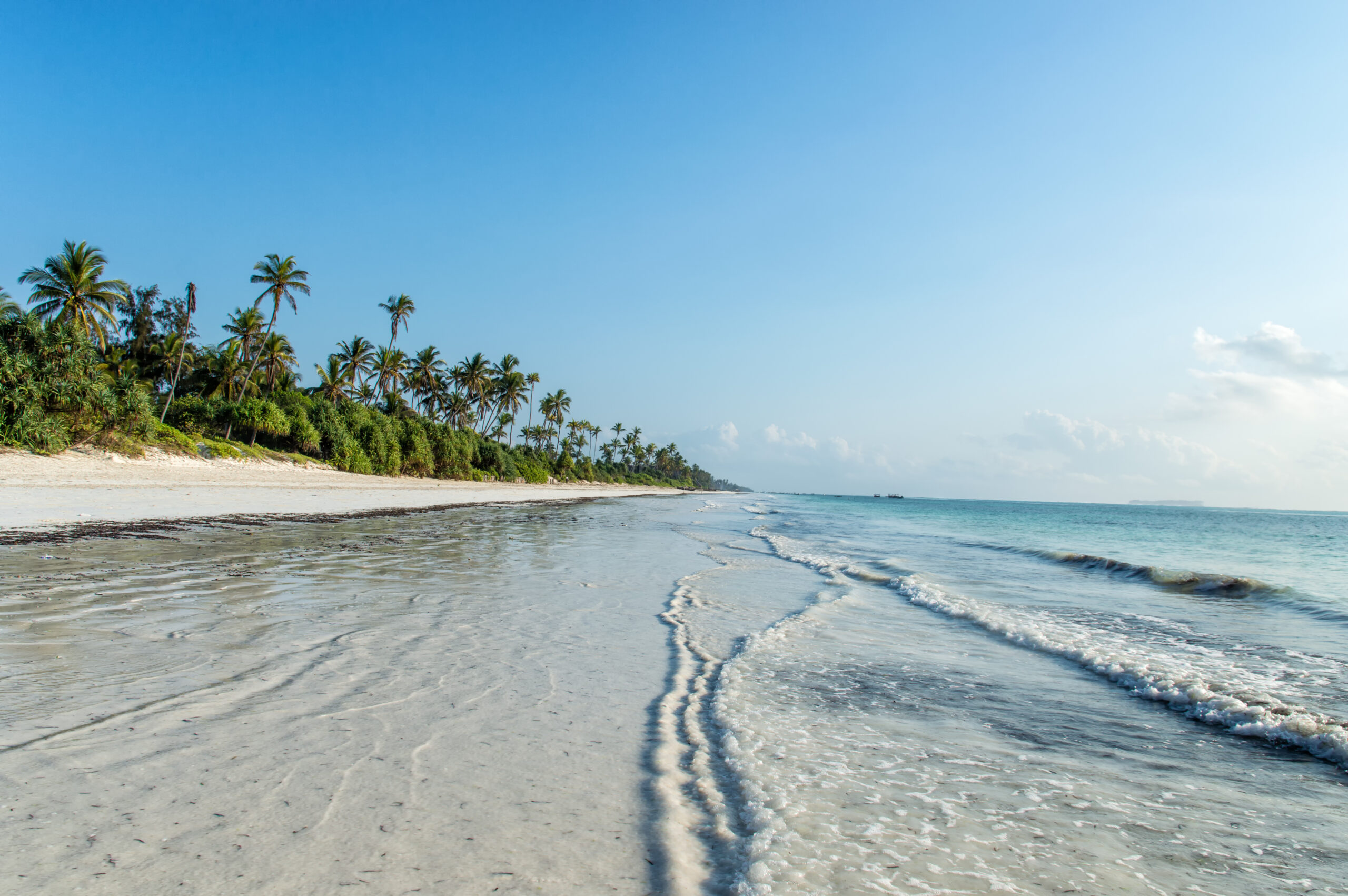 “The Zanzibar archipelago, not only is it an amazing destination for a beach holiday – we usually end the trips there for some relaxation. It has the beautiful warm Turquoise Indian Ocean, but culturally, it’s such fascinating region because it’s home of the Swahili people with culturally hybrid experiences, and it is like the hub of Swahili culture.
“The Zanzibar archipelago, not only is it an amazing destination for a beach holiday – we usually end the trips there for some relaxation. It has the beautiful warm Turquoise Indian Ocean, but culturally, it’s such fascinating region because it’s home of the Swahili people with culturally hybrid experiences, and it is like the hub of Swahili culture.
Stone Town is such a historical city, the food is amazing. For people how have an itch for learning about culture and history, its such a pleasure to go there and we do a lot of learning experiences about Swahili culture, and there are lots of opportunities to give back along the trip – through short-term volunteering, monetary donations on the spot to our social impact partners – and you can take Swahili cooking lessons.”
David: “There are mangrove forests, which are ecologically very important and there’s scuba diving, dhow safaris – where you take a traditional Swahili sailing boat.
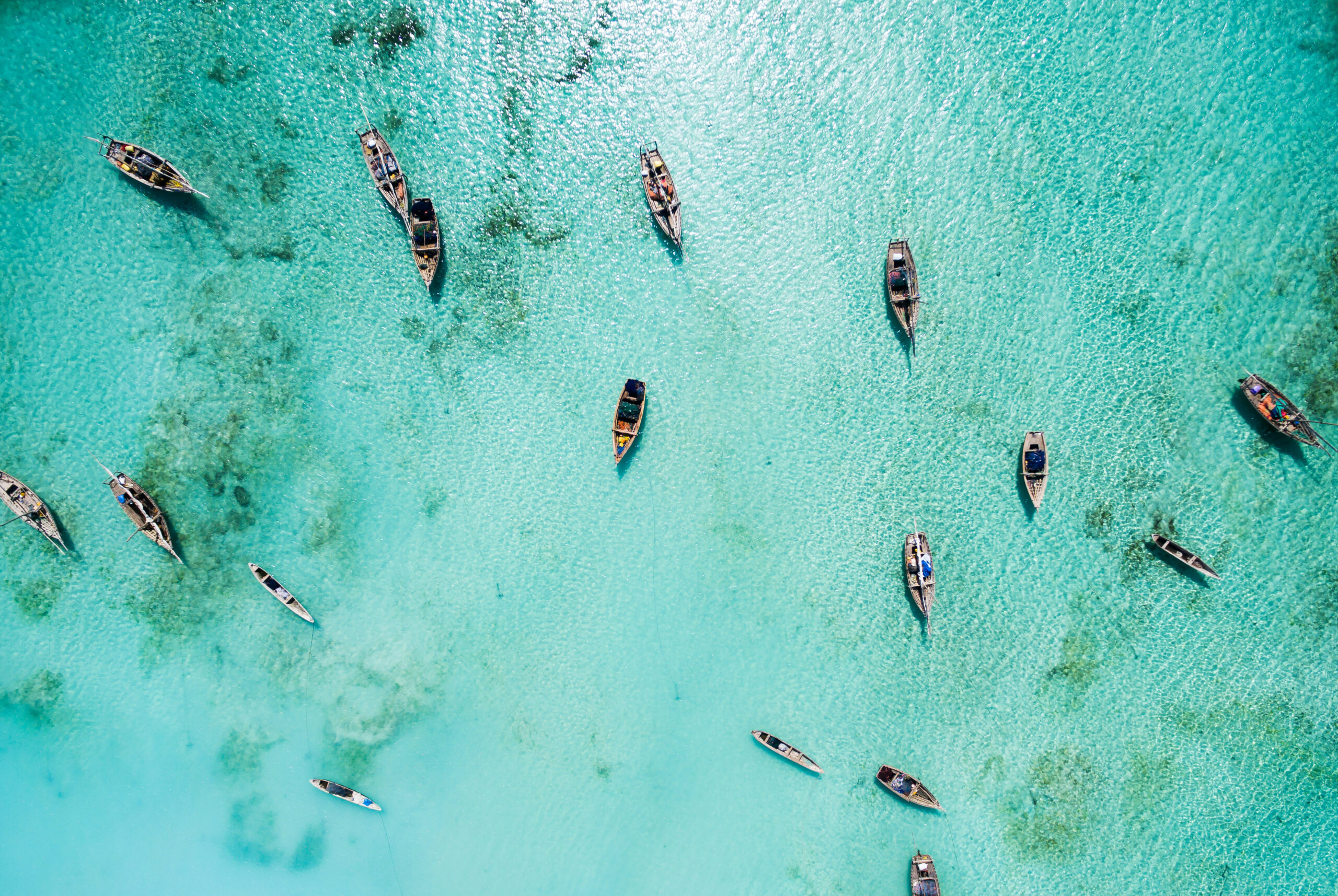 Danielle: “They take you from sand bank to sand bank and make you lunch from the fish they probably caught while you were sailing. You might see dolphins from the boat. Under water, there are sea turtles, bottle nose dolphins, and you can see grey whales out there, and there are all kinds of star fish.”
Danielle: “They take you from sand bank to sand bank and make you lunch from the fish they probably caught while you were sailing. You might see dolphins from the boat. Under water, there are sea turtles, bottle nose dolphins, and you can see grey whales out there, and there are all kinds of star fish.”
Do you feel hopeful following the momentum of the Black Lives Matter movement and the pandemic that people are looking for something different from travel, relearning their travel habits and going into more depth about their impact?
David: “I feel hopeful for sure. A lot of people have had time to just reflect on what’s important and what’s not, and what else they can do to help.”
Danielle: “I personally am very hopeful. The cultural shift of Black Lives Matter globally is really really inspiring to me. It seems like the tourism industry is collectively responding, and they’re responding to people, who are so much more conscious now about the effect of what they do on others – not just the planet but on other people. They’re much more aware of the cultural dynamics, the disparities across the globe, and people want to make a difference.
“Black Lives Matter has impacted us as black business owners and as a black family. We think a lot about what this means for our kids, and It’s hopeful to see the world responding with a sense of responsibility to communities who are different from their own.”

